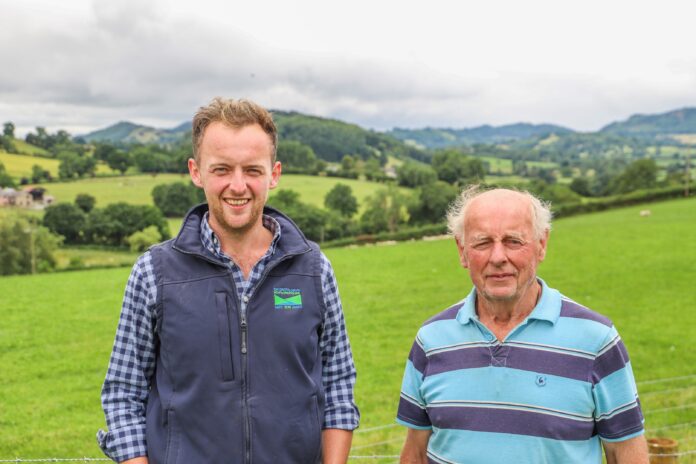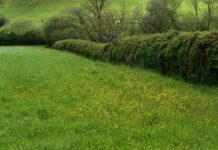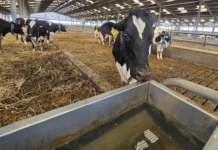 A Welsh upland farm is growing deep rooting legumes and herbs and incorporating nutrient-unlocking fungi at seeding in a bid to increase drought tolerance and improve resilience against dry summers.
A Welsh upland farm is growing deep rooting legumes and herbs and incorporating nutrient-unlocking fungi at seeding in a bid to increase drought tolerance and improve resilience against dry summers.
The Griffiths family produce beef, lamb and cereals at Cilthrew Farm, a Farming Connect ‘Our Farms’ farm at Llansantffraid, North Montgomeryshire.
The farm has shallow soils over rock and a succession of dry summers has put pressure on grazing, with one field of old permanent pasture producing very little grass from June onwards.
As an ‘Our Farms’ project, that 3.2 hectare field has now been reseeded with six different seed mixes, some comprising of a diverse range of species such as timothy, cocksfoot, tall fescue, chicory and plantain, and another incorporating only perennial ryegrass, clover and timothy.
The varying root structures of the herbs and legumes help to penetrate the soil, making it more drought-tolerant while improving microbial activity.
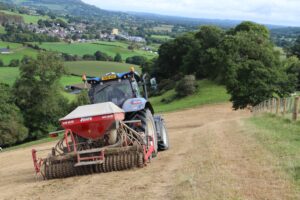
The field was direct drilled in mid-September; three of the seed mixes incorporated a mycorrhizal fungi and rhizobacteria product.
Mycorrhizal fungi have a symbiotic relationship with plant roots, extracting mineral nutrients and water from the soil in exchange for organic carbon compounds from the plant, while rhizobacteria increase nutrient solubility for plants, fixing nitrogen from the air and increasing soil-available phosphorus.
Marc Griffiths, who farms with his parents, Wynn and Bethan, at Cilthrew, hopes the ley will provide fodder for the farm’s flock of 530 ewes and 110 dairy beef cattle in the months when it had previously produced little as growing species with different rooting structures will improve the ability of plants to draw up moisture.
“Long periods of dry weather have made us look differently at how we do things,’’ says Marc.
“We are grateful to Farming Connect for the opportunity to investigate which seed mixes perform the best. If the results are favourable, we will certainly look at growing more of these across the farm to increase sustainability going forward.’’
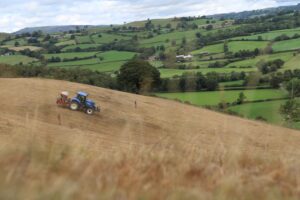
The project is being overseen by Owain Pugh, Farming Connect’s red meat sector officer for mid Wales.
“It will be interesting to see how these leys perform, specifically with the addition of the beneficial microorganisms as the industry faces increased pressure to reduce artificial fertiliser use and reduce the whole-farm carbon footprint,’’ he says.
“We hope to showcase that enhancing the root surface area will enable the leys
to absorb water and nutrients in a more efficient manner.”
The results will be disseminated to the wider industry in 2024, including at an open day at Cilthrew Farm.

| [donate]
| Help keep news FREE for our readersSupporting your local community newspaper/online news outlet is crucial now more than ever. If you believe in independent journalism,then consider making a valuable contribution by making a one-time or monthly donation. We operate in rural areas where providing unbiased news can be challenging. |
















